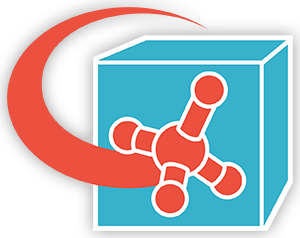Publications
If you use Cassandra for a research publication, please cite the following paper:
"Cassandra: An Open Source Monte Carlo Package for Molecular Simulation", Jindal K. Shah, Eliseo Marin-Rimoldi, Ryan Gotchy Mullen,Brian P. Keene, Sandip Khan, Andrew S. Paluch, Neeraj Rai, Lucienne L. Romanielo, Thomas W. Rosch, Brian Yoo, and Edward J. Maginn, Journal of Computational Chemistry 2017, 38, 1727–1739
http://onlinelibrary.wiley.com/doi/10.1002/jcc.24807/full
Cassandra made the cover for this issue! http://onlinelibrary.wiley.com/doi/10.1002/jcc.24852/full
Bibtex entry:
@article{Cassandra-2017,
Author = {Shah, Jindal K. and Marin-Rimoldi, Eliseo and Mullen, Ryan Gotchy and
Keene, Brian P. and Khan, Sandip and Paluch, Andrew S. and Rai, Neeraj
and Romanielo, Lucienne L. and Rosch, Thomas W. and Yoo, Brian and
Maginn, Edward J.},
Title = {{Cassandra: An open source Monte Carlo package for molecular simulation}},
Journal = {{Journal of Computational Chemistry}},
Year = {{2017}},
Volume = {{38}},
Number = {{19}},
Pages = {{1727-1739}},
Month = {{JUL 15}},
Abstract = {{Cassandra is an open source atomistic Monte Carlo software package that
is effective in simulating the thermodynamic properties of fluids and
solids. The different features and algorithms used in Cassandra are
described, along with implementation details and theoretical
underpinnings to various methods used. Benchmark and example
calculations are shown, and information on how users can obtain the
package and contribute to it are provided. (c) 2017 Wiley Periodicals,
Inc.}},
}
The configurational bias algorithm and fragment sampling approach are described in the following paper, which can be cited if you used these methods:
Jindal K. Shah and Edward J. Maginn, “A general and efficient Monte Carlo method for sampling intramolecular degrees of freedom of branched and cyclic molecules”, J. Chem. Phys., 135, 134121 (2011).
http://scitation.aip.org/content/aip/journal/jcp/135/13/10.1063/1.3644939
A simple and easily implemented Monte Carlo algorithm is described which enables configurational-bias sampling of molecules containing branch points and rings with endocyclic and exocyclic atoms. The method overcomes well-known problems associated with sequential configurational-bias sampling methods. A “reservoir” or “library” of fragments are generated with known probability distributions dependent on stiff intramolecular degrees of freedom. Configurational-bias moves assemble the fragments into whole molecules using the energy associated with the remaining degrees of freedom. The methods for generating the fragments are validated on models of propane, isobutane, neopentane, cyclohexane, and methylcyclohexane. It is shown how the sampling method is implemented in the Gibbs ensemble, and validation studies are performed in which the liquid coexistence curves of propane, isobutane, and 2,2-dimethylhexane are computed and shown to agree with accepted values. The method is general and can be used to sample conformational space for molecules of arbitrary complexity in both open and closed statistical mechanical ensembles.
